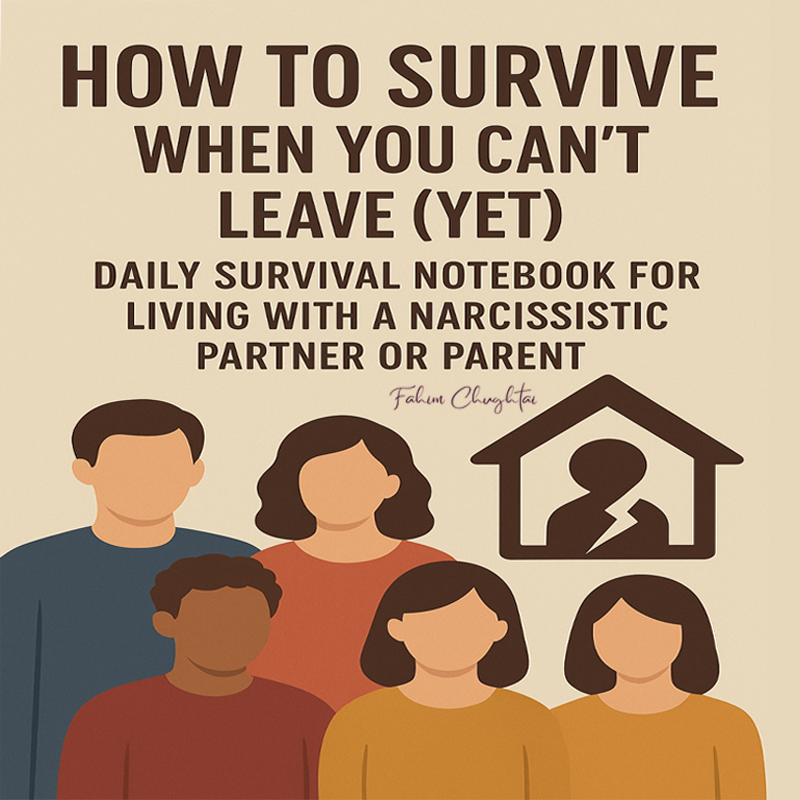Are you constantly questioning your sanity in a relationship that once felt perfect? Do you find yourself walking on eggshells, apologizing for things you didn’t do, or feeling like you’re losing your mind? You might be experiencing covert narcissist devalue tactics – subtle yet devastating manipulation techniques that destroy your self-worth from the inside out.
- What Are Covert Narcissist Devalue Tactics?
- The 15 Most Devastating Covert Narcissist Devalue Tactics
- Recognizing the Psychological Impact
- Why Covert Narcissist Devalue Tactics Are So Effective
- Breaking Free From the Covert Narcissist’s Web
- Recovery and Healing Strategies
- The Science Behind the Manipulation
- Moving Forward: Reclaiming Your Power
- Frequently Asked Questions About Covert Narcissist Devalue Tactics
- The Path to Freedom Starts With Recognition
Unlike their grandiose counterparts who openly criticize and belittle, covert narcissists operate in the shadows. Their devaluation methods are so subtle that you might not even realize you’re being systematically torn down until the damage is already done. Understanding these tactics is crucial for your mental health and emotional survival.
What Are Covert Narcissist Devalue Tactics?
Covert narcissist devalue tactics represent a calculated arsenal of psychological manipulation techniques designed to erode your self-esteem while maintaining the narcissist’s image as the “good guy.” These tactics are deliberately subtle, making them incredibly difficult to identify and even harder to explain to others.
The devaluation phase typically begins once the narcissist feels secure in the relationship – perhaps after you’ve moved in together, gotten married, or made significant financial commitments. This is when their mask begins to slip, and the systematic destruction of your self-worth begins.
Am I Dealing With a Covert Narcissist — or Just Toxic Behavior?
The 15 Most Devastating Covert Narcissist Devalue Tactics
1. The Silent Treatment Weaponization
The silent treatment isn’t just ignoring you – it’s a sophisticated form of emotional punishment. Covert narcissists use prolonged silence as a weapon to make you desperate for their attention and validation.
How it manifests:
- Suddenly becoming emotionally unavailable without explanation
- Responding with one-word answers or complete silence
- Acting as if you’re invisible while interacting normally with others
- Creating an atmosphere of walking on eggshells
This tactic is particularly damaging because it activates your attachment system, making you more dependent on their approval and attention.
2. Passive-Aggressive Criticism Disguised as “Jokes”
Covert narcissists excel at delivering cutting criticism wrapped in humor. They’ll make devastating comments about your appearance, intelligence, or capabilities, then claim they were “just joking” when you react with hurt.
Warning signs:
- Consistent “teasing” that always targets your insecurities
- Comments that leave you feeling smaller, not laughing
- Using your vulnerabilities as material for their humor
- Dismissing your hurt feelings as you being “too sensitive”
3. The Comparison Trap
This tactic involves constantly measuring you against others – and you never measure up. They’ll praise their ex, a coworker, or a friend while subtly criticizing the same qualities in you.
Common examples:
- “Sarah is so organized, unlike some people…”
- Praising others’ accomplishments while minimizing yours
- Sharing stories about how “normal” people would handle situations
- Creating triangulation with other people to make you feel inadequate
4. Emotional Withdrawal During Vulnerability
When you’re at your most vulnerable – perhaps sharing deep feelings or going through a difficult time – the covert narcissist withdraws their emotional support. This creates trauma bonding and teaches you that vulnerability equals abandonment.
How they do it:
- Becoming distant when you need support most
- Minimizing your problems or changing the subject
- Being physically present but emotionally absent
- Using your vulnerable moments against you later
5. The Memory Rewrite Campaign
Gaslighting takes on a covert form through subtle memory manipulation. They’ll slightly alter details of events or conversations, making you question your recollection of reality.
Subtle gaslighting includes:
- “That’s not what I said” (when you remember clearly)
- Denying promises they made
- Reframing their harsh words as concern or helpfulness
- Making you doubt your perceptions of their behavior
6. Backhanded Compliments That Sting
Master manipulators disguise insults as compliments, leaving you feeling confused and hurt while they maintain plausible deniability.
Examples of backhanded compliments:
- “You look great for your age”
- “You’re smarter than you look”
- “That dress is so forgiving on your figure”
- “You’re finally starting to get it together”
7. The Intermittent Reinforcement Cycle
Perhaps the most psychologically damaging tactic, intermittent reinforcement involves unpredictable patterns of kindness and cruelty. This creates an addiction-like bond that keeps you hooked and hoping for the “good times” to return.
The cycle looks like:
- Periods of coldness followed by sudden warmth
- Unpredictable affection that feels amazing but brief
- Random acts of kindness that give you false hope
- Creating an emotional rollercoaster that leaves you confused
8. Subtle Boundary Violations
Covert narcissists don’t respect your boundaries, but they violate them so subtly that you might feel guilty for even noticing.
Boundary violations include:
- Reading your private messages “by accident”
- Showing up uninvited and acting hurt when you’re not thrilled
- Sharing your private information with others
- Making decisions that affect you without consultation
9. The Victimhood Reversal
When confronted about their behavior, covert narcissists immediately flip the script and become the victim. This tactic makes you feel guilty for even bringing up concerns.
How they play victim:
- “After everything I’ve done for you…”
- Making their hurtful behavior about their pain or stress
- Crying or appearing wounded when called out
- Making you comfort them instead of addressing the issue
10. Future Faking and False Promises
They paint beautiful pictures of your future together or make promises they have no intention of keeping. This keeps you invested in the relationship while they continue their devaluation campaign.
Examples of future faking:
- Planning elaborate vacations that never happen
- Promising to change behaviors they continue
- Discussing marriage or commitment without following through
- Creating false hope to keep you emotionally invested
11. The Enabler Creation Strategy
Covert narcissists work to isolate you from supportive relationships by either driving people away or turning them into flying monkeys who unknowingly support the narcissist’s narrative.
Isolation tactics:
- Subtle criticism of your friends and family
- Creating uncomfortable situations that make others avoid visiting
- Sharing twisted versions of events to gain sympathy
- Making you defend them instead of seeking support
12. Criticism Through “Concern”
They frame their criticism as worry or care for your wellbeing, making it nearly impossible to object without seeming unreasonable.
Concern-trolling examples:
- “I’m just worried about your weight/health/choices”
- “I’m concerned about how this makes you look”
- Offering “helpful” suggestions that are actually criticisms
- Using fake concern to control your behavior
13. The Emotional Invalidation Technique
Your feelings, reactions, and experiences are consistently minimized or dismissed. Over time, this teaches you not to trust your own emotional responses.
Invalidation looks like:
- “You’re overreacting”
- “It wasn’t that bad”
- “You’re being too emotional”
- Dismissing your feelings as unreasonable or wrong
14. Competence Undermining
Covert narcissists systematically undermine your confidence in your abilities, making you more dependent on them and less likely to leave.
How they undermine you:
- Questioning your decisions and judgment
- Offering to “help” with things you can handle alone
- Pointing out minor mistakes while ignoring successes
- Making you doubt your professional or personal capabilities
15. The Hot and Cold Intimacy Control
Physical and emotional intimacy becomes a tool for control. They use the withdrawal of affection as punishment and its return as reward, creating confusion about your worth and desirability.
Intimacy manipulation includes:
- Sudden rejection of physical affection without explanation
- Using sex or intimacy as a reward for compliance
- Creating insecurity about your desirability
- Making intimacy feel conditional on your behavior
Recognizing the Psychological Impact
Understanding covert narcissist devalue tactics is only the first step. These techniques create profound psychological damage that can include:
- Chronic self-doubt that persists even after the relationship ends
- Hypervigilance as you constantly monitor your behavior to avoid triggering them
- Emotional dysregulation from the constant stress of unpredictable treatment
- Trauma bonding that makes leaving feel impossible
- Identity erosion as you lose touch with who you were before the relationship
The insidious nature of these tactics means that victims often blame themselves, wondering what they did wrong or how they can fix the relationship. This self-blame is exactly what the covert narcissist wants – it keeps you focused on changing yourself rather than recognizing their abusive behavior.
Why Covert Narcissist Devalue Tactics Are So Effective
These manipulation techniques work because they exploit fundamental human needs for love, acceptance, and security. The covert narcissist’s approach is particularly devastating because:
They maintain plausible deniability. When confronted, they can always claim good intentions or that you misunderstood their behavior.
They operate gradually. The devaluation doesn’t happen overnight but rather through a slow erosion of your self-worth that makes each incident seem minor.
They target your vulnerabilities. Covert narcissists are expert at identifying your insecurities and using them as weapons against you.
They create cognitive dissonance. The contrast between their loving public persona and private cruelty makes you question your own perceptions.
Breaking Free From the Covert Narcissist’s Web
If you’re recognizing these patterns in your relationship, know that you’re not crazy, oversensitive, or imagining things. Covert narcissist devalue tactics are real, documented forms of psychological abuse that require serious attention and intervention.
Immediate protective steps include:
Document everything. Keep a private journal of incidents, comments, and your emotional responses. This helps you maintain clarity about what’s really happening.
Reconnect with your support system. Reach out to trusted friends and family members who knew you before this relationship. Their perspective can be invaluable.
Establish boundaries. Start small but be consistent in protecting your emotional and physical space.
Prioritize self-care. Engage in activities that rebuild your sense of self and remind you of your worth independent of this relationship.
For those who need professional guidance in navigating this complex situation, specialized support can make all the difference. The Narcissistic Abuse Clarity Report provides expert analysis of your specific situation, helping you understand exactly what you’re dealing with and create a personalized protection strategy. Within 48-72 hours, you’ll receive comprehensive insights into the narcissist’s tactics and a clear roadmap for recovery.
Recovery and Healing Strategies
Breaking free from covert narcissist devalue tactics isn’t just about leaving the relationship – it’s about rewiring your brain from the neurological addiction created by trauma bonding. This process requires understanding that your attachment to this person isn’t love; it’s a biochemical response to intermittent reinforcement that’s stronger than cocaine.
The recovery process involves specific phases that address both the practical aspects of protection and the neurological healing necessary for true freedom. Many survivors find structured approaches more effective than willpower alone.
The 30-Day Trauma Bond Recovery Workbook provides a science-based system that guides you through breaking these neurological patterns. This isn’t just another relationship guide – it’s a day-by-day rewiring program that helps you stop the obsessive thinking, resist the urge to reconnect, and rebuild your identity independent of the narcissist.
For those who cannot immediately leave their situation, safety planning becomes crucial. Whether you’re dealing with financial constraints, children, or other complications that make leaving difficult, having a survival strategy can protect your mental health while you work toward freedom. Specialized guidance for these complex situations, such as found in “How to Survive When You Can’t Leave Yet,” provides practical tools for emotional protection even within ongoing contact.
The Science Behind the Manipulation
Understanding the neurological basis of these tactics helps explain why they’re so effective and why recovery requires more than just recognition. Covert narcissist devalue tactics create specific changes in your brain chemistry:
Dopamine dysregulation occurs through intermittent reinforcement, creating addiction-like cravings for their approval.
Cortisol elevation from chronic stress impacts memory, decision-making, and emotional regulation.
Oxytocin bonding creates attachment even to harmful partners through the trauma bonding process.
Neural pathway formation makes questioning yourself feel more natural than trusting your instincts.
This scientific understanding is crucial because it explains why logical thinking alone isn’t enough to break free. Your brain has been literally rewired to prioritize this relationship above your own wellbeing.
Still Living With Them? You’re Not Helpless.

Moving Forward: Reclaiming Your Power
Recovery from covert narcissist devalue tactics is possible, but it requires specific strategies that address both the practical and psychological aspects of the abuse. The journey involves:
Cognitive restructuring to rebuild trust in your own perceptions and judgments.
Emotional regulation techniques to manage the intense feelings that arise during recovery.
Identity reconstruction to remember who you were before this relationship and envision who you can become.
Boundary development to protect yourself from future manipulation.
Support system activation to counteract the isolation tactics used against you.
The path forward isn’t just about escaping the current situation – it’s about building resilience against future manipulation and creating the life you deserve. Understanding these tactics is your first step toward freedom, but implementing recovery strategies is what transforms knowledge into liberation.
You’ve Seen the Patterns. Now Break the Bond.
Remember that recognizing covert narcissist devalue tactics doesn’t make you weak or foolish for having experienced them. These are sophisticated manipulation techniques designed to exploit normal human psychology. Your recognition of these patterns demonstrates strength and insight, not vulnerability.
Frequently Asked Questions About Covert Narcissist Devalue Tactics
Covert narcissists use passive-aggressive comments, silent treatment, emotional withdrawal, minimizing your achievements, giving backhanded compliments, and subtle criticism disguised as concern. They master plausible deniability – when confronted, they claim they were “just joking” or that you’re “too sensitive,” making you question your own perceptions.
Examples include withholding affection after perceived slights, making sarcastic remarks about your appearance or choices, comparing you unfavorably to others, “forgetting” important events, giving you the silent treatment over minor issues, dismissing your emotions as “overreacting,” and subtly undermining your confidence through constant micro-criticisms.
The devalue phase can last weeks, months, or even years, often alternating with brief periods of idealization to keep you hooked. Unlike overt narcissists who devalue quickly and obviously, covert narcissists employ a “slow boil” approach that gradually erodes your self-worth over time, making it harder to recognize the abuse.
Common triggers include achieving success they envy, setting boundaries, questioning their behavior, not providing enough attention or validation, perceived criticism (even constructive feedback), spending time with others, or anything that threatens their false superiority. Even minor perceived slights can trigger disproportionate punishment through devaluation.
Don’t engage with their bait, avoid defending yourself against false accusations, document incidents for your own clarity, maintain your support network, set firm boundaries, and refuse to apologize for things you didn’t do. Remember: you cannot logic someone out of a position they didn’t logic themselves into.
Overt narcissists devalue through direct criticism, yelling, and obvious put-downs. Covert narcissists use subtle tactics like passive-aggression, silent treatment, and emotional manipulation that are harder to identify and prove. Covert devaluation is more psychologically damaging because it’s designed to make you question your own reality and sanity.
The Path to Freedom Starts With Recognition
Understanding covert narcissist devalue tactics is your first crucial step toward freedom. These subtle yet devastating manipulation techniques are designed to keep you trapped in confusion, self-doubt, and desperate hope for change that will never come.
The 15 tactics outlined in this guide represent just some of the sophisticated methods covert narcissists use to maintain control while appearing innocent to outside observers. Your recognition of these patterns isn’t weakness – it’s the beginning of your strength.
Recovery requires more than recognition, however. It demands specific strategies, support systems, and often professional guidance to break the neurological patterns created by prolonged manipulation. The trauma bonding, gaslighting, and systematic erosion of your identity don’t heal through willpower alone.
Your life, your sanity, and your future deserve protection from these insidious tactics. Every day you spend recognizing these patterns but taking no action is another day of your precious life given to someone who views your suffering as their supply.
The choice is yours: continue cycling through confusion and hope for change that won’t come, or take the decisive steps needed to reclaim your power and create the life you deserve. Your freedom is possible, but only you can choose to pursue it.
The person reading this has already survived the worst part – you’ve lived through the systematic destruction of your reality and somehow retained enough strength to seek understanding. That strength is everything. Now it’s time to use it to build something better.
Your story of survival can become your story of triumph, but only if you choose to write a different ending. The covert narcissist devalue tactics that once controlled your life can become the very knowledge that sets you free.







